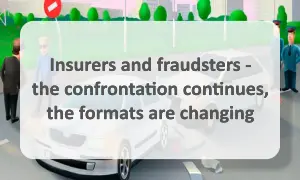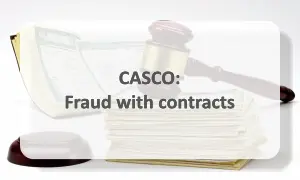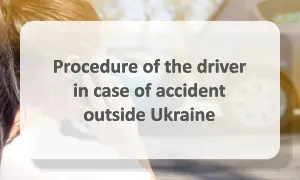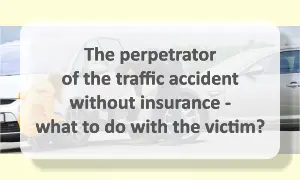Insurers and fraudsters - the confrontation continues, the formats are changing

How are strategies and tactics in the fight against insurance fraud changing? What threats and dangers await insurers and the insurance market in the "digital future"? These and other questions will be answered by Igor Fatyanov, Chairman of the Insurance Fraud Control Committee of the All-Union Insurance Association.
How will insurance fraud and abuse of rights in automobile insurance change in connection with the development of information technology? Does digitalization work to the advantage of insurers or fraudsters? Are there examples of "high-tech" fraud that have been detected or prevented?
Of course, fraudsters are mastering the digital space. The most common cases (which are now more or less dealt with) are fake websites issuing fake CMTPL policies and the use of Internet sales for fraud. I don't take cyber-risks yet, because they are not so often realized in Russia. On the whole, digitalization is more beneficial to insurers than to fraudsters, as it greatly increases the ability of insurers to exchange information. On a qualitative level, it creates new opportunities for us, and it creates them faster than for fraudsters.
There are three well-known examples of information sharing that digitization allows us to do. The first is the Insurance History Bureau (IHB), which allows insurers to exchange information on the history of the insured; it works quite well now for cars. I hope, and it will not be long before the new law is adopted, that the Community and the Central Bank will be able to agree on the introduction of the BHI, similar to the law on the BCI.

The second is the exchange of data with the FIUs. We are now able to verify the information provided electronically by the insured person as part of the CMTPL insurance contract by directly contacting the databases of the federal authorities. The law gives us the opportunity to respond in cases where we are provided with knowingly false information.
A third, lesser-known case of information exchange is the interstate anti-fraud agreements between Russia and the CIS countries (primarily Kazakhstan). This makes it possible to assess and manage the risks of hijacking - we see the facts of border crossings, we have the data, they also have it, and it can be exchanged. The first "pilots" have now taken place, RAMI has done a lot of work, and we see the results as positive.
As far as high-tech fraud is concerned, there have been few notable cases so far, in fact I find it difficult to name a mega-interesting case. It's mostly the old-fashioned way. Either it has to do with personal insurance. For example, when people are insured when they already have some kind of disease. But the total fraud in personal insurance still brings much less losses than property insurance, and it is difficult to call it all super-technological, common cases when a doctor writes false documents and the client gets insurance, such as the "Rostov" or "Kursk" case.
For cyber risks, which are insured both under separate insurance contracts for them and risks included in complex contracts, fraud is not yet widespread, because the type itself is very new.
There was a recent story - leakage of personal data from the BCI. Are you not afraid that there will be similar cases with BCIs?
There are a lot of BCIs, it is more likely that one of them will fail to keep an eye on things. And as far as I know, the leak did not come from the BCI itself, but from the organization that received the data from them. It was a microfinance organization, so neither a bank nor an insurance company was the source of the leak.
In the world practice there are precedents of leaks from BCIs, there are known large cases of data leakage in the United States and others. But we know nothing about leaks from BCIs, although they are present in all countries of the world. It is not that they are better protected, but apparently they are less vulnerable and less interesting and do not give a reason for hacking.
We are not going to build a new database, it has been around for a long time, we are just talking about improving its efficiency and functionality. The data has already been accumulated and not only in the BSI, there is a very large database on CMTPL insurance. RAMI reports that there are billions of transactions. This is an example of insurers successfully building very large data sets.
In general, insurers have had positive experiences in building databases and sharing information with federal agencies and with each other. For insurers, this is still the optimal way to work, and it helps a lot in the fight against fraud. If you look at the insurance history of a client, you can draw a lot of conclusions about him and the continuation of relations with him. For someone who has been insured for 10 years without any losses, the probability of fraud is an order of magnitude lower, you can make broader offers, offer more favorable terms of cooperation, reduce tariffs.
So the creation and unification of information resources is now the main thing in the fight against fraud?
One of the main things. I have already mentioned three areas where work is already underway, and there are two more promising ones. First, we are working on a video surveillance system; "pilot" projects have been launched in a number of cities (Moscow, St. Petersburg, Kazan, etc.), and our colleagues will soon put them into commercial operation.
Secondly, it is important to have access to the data of health care institutions because we also want to proactively work on the facts of life and health insurance fraud. As long as the weight of life and health fraud remained small, it was not the main direction for our committee, although we always thought about it, but the main focus was on motor and property. In motor insurance fraud is the most widespread, in property insurance the frequency of fraud is low, these are one-off cases, but for very large sums. But now we are going to shift the focus to personal insurance, we are collecting statistics, we are broadening the methodological base. And if they decide to raise the limit for CMTPL life and health insurance to 2 million roubles, we will have to be even more active, catch up and deal with it in depth, because 2 million is already a serious cause for fraud. We are discussing this in the committee, and based on the results of the "Barrier-2019" conference in December, we will analyze what additional activities can be implemented by insurance companies.
In general, the outlook for fraud is quite positive. This activity is very active, a number of programs have now received serious development. We see growing dynamics in the use of BSI, colleagues from RAMI have helped to promote a number of issues, the IT platform is being rebuilt, and the cost of using resources has been significantly reduced. The Central Bank is becoming increasingly active in the area of cooperation with law enforcement agencies.
Not long ago, we deepened the collection of statistics, and now we can see the number of applications to law enforcement agencies and open cases, as well as the amount of damage in rubles. Thanks to this, we can more accurately prioritize and manage our activities.
Work on motorized species has a pronounced regional specificity. We must continue to work in problematic regions, without slowing down, in order to suppress hotspots.
Perhaps there will be a separate program for corporate species, there is a need there as well. We will discuss this in the committee. So far, the coverage has been very poor, the sums involved are very large, and it is not clear how to consolidate to fight it, because each case has its own specificities.
Insurers have more or less adapted to the situation with their expertise in motor insurance, but what about expertise in assessing damage to life and health?
The first attempts to systematize claims management in personal insurance were made by ROSNO and Ingosstrakh in the 90s. Ingosstrakh specialists linked all the registers of large hospitals to the ICD and created a single register of all diagnoses and diseases in their system, linked all the bills to it, structured them, calculated statistics for each of them.... Insurers have enormous experience in medical expertise. It is a separate layer of knowledge. Auditing the medical industry is not like auditing a car service, where you can come in and see what kind of part they put in. To deal with medical practice, the expert must have a degree, and it is better if it is higher than that of the doctor who made the diagnosis. The average person does not encounter this, for him this topic is hidden, but in VMI this control is well built. Methodical elaboration in medicine is more complicated and has its own peculiarities, but it is definitely not worse than in car insurance.
So as far as personal fraud is concerned, the medical expertise of the insurer will not be the problem. Our expertise will determine the medical part - how it is necessary to treat, how it is not necessary, but the assessment of economic losses is a problem. We used to take the thesis "life is priceless" literally - if there is no price, there are no losses. Now it turns out that a person's unearned income has very specific characteristics, and that's where it all started. A lot of things will develop around this, both on MTPL (which worries me the most because of its mass and untried nature) and on mortgages. As long as there is no judicial practice and a well-developed legal framework, there will be room for fraudsters. For example, in the practice of our colleagues there was such a case. The insured goes to court (alone! without glasses, etc.), brings the result of the expert examination confirming the complete loss of vision. The court awards 100% compensation. The judge is not an ophthalmologist, but the expert wrote "total loss".
In the West, for every questionable type of injury, there are tons of court decisions. It all started the same way - they claimed a lot of neck bruises: he cannot work, he will be treated in a sanatorium, and the insurer will pay indefinitely. Now honest insurers are creating excess reserves from MTPL collections for the possible development of unprofitability in this area.
What forecasts and plans in the field of combating insurance market fraud can you announce as the head of the relevant expert committee of the All-Union Insurance Association? What does the future hold?
Basically, the issue of fraud is cyclical, time will pass and the same auto insurance fraudsters will come back with some new ideas. The battle between good and evil is eternal. The wave of life and health fraud will probably start its journey with MTPL insurance. Mortgage insurance will become a source of personal insurance fraud - a growing type where the dynamics is very positive in relation to all other types. False injuries are claimed there, facts of insurance with already existing diseases are revealed. In the next 3-5 years fraud in life and health insurance will come to the fore due to the growth of MTPL limits, too loosely defined legislative norms on such payments and the lack of established judicial practice, as well as due to the above-average growth of mortgages and payments on the already accumulated portfolio of life insurance. Contracts there are long-term, the fact that the annual growth rate has decreased does not cancel the fact that the number of contracts is slowly accumulating and the volume of simultaneously active risks is growing faster than the collections.
Moreover, if we see a further decline in household incomes, this is a clearly proven factor in the growth of fraud: when money is scarce, it encourages fraud.
Based on these trends, we will develop a new anti-fraud strategy. We will hold the IV International Conference "Barrier-2019. Digitalization in Insurance - Paradigm Shift and a New Front in the Fight Against Fraud" and see what will be most relevant for our colleagues. I think it will be necessary to discuss issues related to information exchange, to summarize some interim results. I would also like to raise the issue of obtaining information from hospitals. It is too early to summarize some results of work with the Ministry of Health, rather we should outline some ways, share opinions, unsuccessful experiences that should not be repeated, try to consolidate the community around promising areas of work with the Ministry of Health and personal insurance. Perhaps it makes sense to discuss the law on BSI - a lot of work has been done, but it is not so obvious to the general public. We will discuss whether the Committee should include business insurance in the work, what may be the attempts to increase the amount of damages, to analyze some cases and successful experience of struggle to see if it can be replicated. In automobile insurance there is a clear need for data consolidation and work with law enforcement agencies, and in this area the All-Union Insurance Union and RAMI can be most useful - to provide IT infrastructure, to provide official support for the exchange of data on the same video cameras (which is impossible to build for each individual insurer). In general, in motor insurance we will discuss course correction, in personal insurance we need to work it out, and in corporate insurance we need to decide whether it is necessary or not. I look forward to a productive discussion of all this in a professional environment.
What do insurers want to ask regulators and other government officials at the Forum? What speeches and proposals do insurers expect from representatives of Western colleagues and representatives of the IT sphere?
Regarding the fight against fraud, insurers expect the Central Bank to support their work with law enforcement agencies and the development of BSI. We want to get to know the law enforcement agencies' vision of the problem, to listen, first of all, to the criminal investigation. So far, they often have the opposite vision, they take care of financial organizations that are fraudulent (I hope that insurers are the least noticed in this). We are interested in their views, where insurers can improve their practices, what is the ideal position of insurers.
As for our Western colleagues, they have a very different practice due to different legislation. The only thing we have in common are the different BSI programs, which are almost identical. You might be interested in their anti-fraud practice in corporate insurance, where they are more advanced. In life and health, they are too advanced, we can't keep up. In motor insurance, their main loss from fraud cases is life and health, we are still far away. In Germany, the most popular types of insurance for fraud are household property and general liability, while in our country the penetration of these types of insurance is negligible.
It would be interesting to hear from representatives of the IT sphere about their work with analytics, especially in terms of analyzing big data. Of course, there is a great potential in the fight against fraud, but if the insurance market itself does not grow, everything will be sad.
It is not uncommon to encounter situations in which from the insurance company with which an automobile collision insurance contract has been concluded attempts to obtain payment illegally. Let's look at the most common cases. TOP-5 Illegal methods of enrichment in motor hull insurance Unscrupulous policyholders come up with many different ways to outsmart the insurance company and illegally enrich themselves. But for each method of fraud, the insurer has its own countermeasure. Double car insurance Fraudsters use this method when the car is already damaged at the time of insurance. Then they find a car of the same make and color and come to insure it with the documents of the damaged car, hoping that the body and chassis number will not be checked. However, when concluding a car insurance contract, an employee of the insurance company is obliged to check the data of the car recorded in the documents with the actual data. Replacement of a drunk…
Procedure of the driver in case of accident outside Ukraine
1. Stop the vehicle and stay at the accident site. Do not change the position of the vehicle under any circumstances. 2. Call the police. Obtain a copy of the report or any other document that establishes fault, identifies the participants and the circumstances of the accident (it is advisable to take photos or videos of the vehicles involved in the accident from different angles and of other objects involved in the accident). If none of the accident parties speaks the language of the country where the accident occurred, you should call the Motor Bureau (an organization established to control the activities of insurers) of the country…
Accident perpetrator without insurance - what should the victim do?
Accident without insurance - what to do with the victim Sad statistic: About half of the car owners do not consider it necessary to take out an insurance policy. This is despite the fact that the law makes it illegal to drive a vehicle without MTPL insurance. Violating the law seems to be advantageous for drivers: the fine is often less than the cost of insurance. But what should the victim do if the person who caused the accident has no insurance and refuses to pay? Who will pay…


